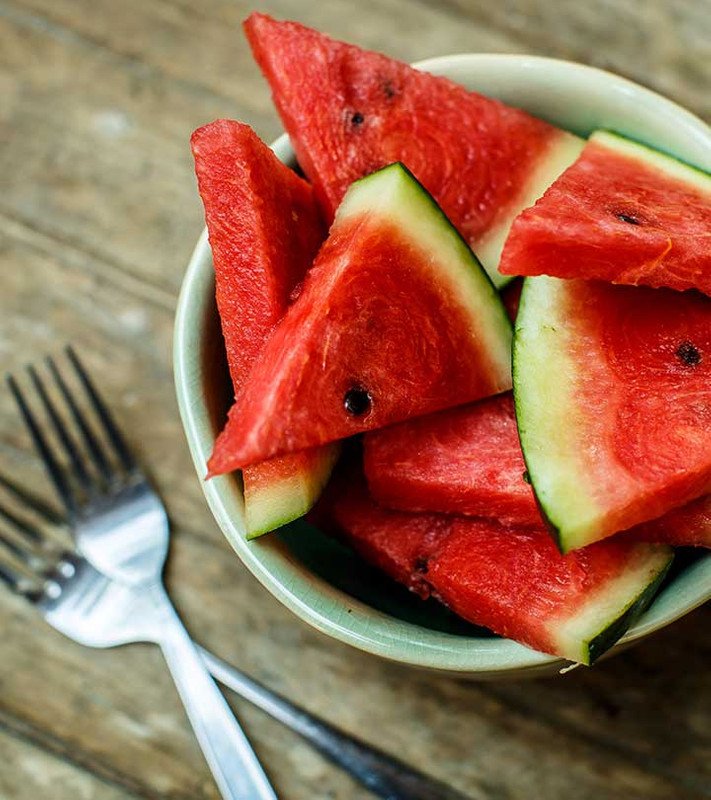(image source)
During summers, we can find watermelons everywhere! The perfect summer fruit, watermelons with high water content, make for great thirst quenchers. Watermelons are not just tasty and refreshing but are healthy too! They contain high amounts of Vitamins A, C and B6, and potassium. They also contain plant chemical, such as citrulline and lycopene. These chemicals in watermelons make them good for our health.
But like everything else, too much consumption of watermelon can create problems for your body.
Watermelon is a fat-free fruit and is a good source of Vitamins A, B6, and C. It also contains Potassium and the antioxidant plant phytochemicals lycopene and citrulline. Lycopene is what gives watermelon the pink, bright red, and sometimes deep red color.
Lycopene is a very strong antioxidant.The mineral potassium can help lower blood pressure and also aids the proper functioning of all body organs. The phytochemical citrulline benefits the heart and circulation.
It is estimated that 1 1/2 cups of watermelon contains between 9 and 13 grams of lycopene. A cup of watermelon contains 50 calories, 15 mg Vitamin C, 585 IU Vitamin A, and 186 mg potassium.
With all this in mind, watermelon is a healthy fruit that can give rise to side effects if eaten in too much abundance.
Over-Eating Watermelon
It has been found that consuming 30 mg or more of lycopene per day can cause side-effects. This include:
Intestinal disturbance
Excessive consumption of lycopene rich watermelons can cause symptoms like nausea, vomiting, diarrhea, bloating, gas and indigestion. This can be more serious for the elderly, as their digestive systems are more sensitive due to age.
Cardiovascular Problems
Watermelon contains very good quantities of potassium. Three cups of watermelon contain about 560 mg of potassium. However, high levels of potassium in the blood can cause cardiovascular problems like irregular heartbeats and weak or absent pulse. High potassium levels can also affect the nervous system and motor control. This is all the more important for those who suffer from kidney dysfunction, as their kidneys are unable to remove the excess potassium.
Allergic Reactions
Some people may develop allergic reactions to watermelon consumption, which can result in mild to severe rashes, facial swelling, or anaphylaxis. Those suffering from allergy to latex, carrots, or cucumber may be more prone to watermelon allergy.
Benefits of Eating Watermelon
Viagra-like Effect on Men
Citrulline in watermelon is converted into the aminoacid arginine by the body. This increases the nitric oxide levels, which in turn has a relaxing effect on the blood vessels. A study done at Texas A&M University shows that this relaxing effect on the blood vessels is similar to what the active drug in Viagra, sildenalfil, causes. Thus, consumption of watermelon may enhance libido.
Reducing Blood Pressure
In those with prehypertension, watermelon consumption may help lower blood pressure. A study conducted by Florida State University indicates that watermelon also improves arterial health and its function. The arginine, that is the result of citrulline conversion, gives this beneficial effect.
Hi! I am a robot. I just upvoted you! I found similar content that readers might be interested in:
https://caloriebee.com/nutrition/Watermelon-And-Diarrhea-Some-Effects-Of-Watermelon-Consumption